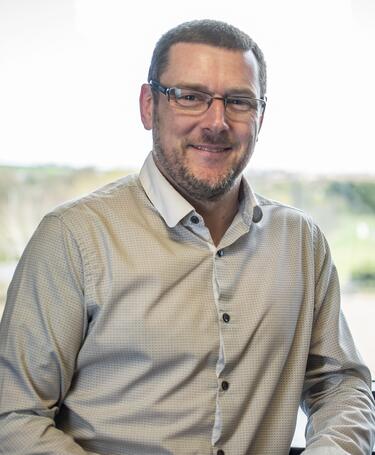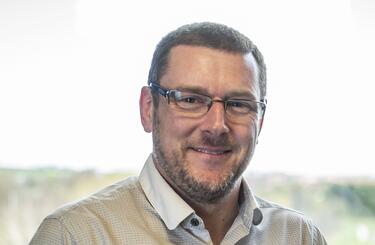
Developing quality skills
Progress indicator

As part of a series of articles in which quality professionals share their experiences of different quality qualifications, Hugh Edwards, Quality Manager at Qnostics, describes his experience of achieving an MSc in Quality Management at the University of the West of Scotland.
Q: How did you first hear about quality as a job?
A: In my first role within the medical device industry, I worked for quite a large organisation. through this I was introduced to ‘quality’ and how quality behaviours can be engrained in everyday tasks, particularly in the manufacture of products and the development of manufacturing processes.
I was also exposed to the organisation’s quality department – what the function of the quality department was and what each role within the department was responsible for. This is what motivated me to pursue quality as a career.
Q: What was your first quality role?
A: My first quality role was as a corrective and preventive actions (CAPA) administrator at that same organisation. After five years in manufacturing, completing in-process inspection of products, I gained promotion to the quality assurance department to manage the organisation’s CAPA processes. This also included the management of the nonconformance (NC) and deviations processes.
The main priorities of the role were to assist CAPA/NC owners conduct robust root cause analysis and ensure that corrective and preventative actions implemented addressed these root causes. In addition, the tracking of CAPAs, NCs and deviations, and the reporting of these to senior management, was a critical part of the role, ensuring actions were taken in a timely manner, escalated accordingly, and closed within their desired due dates.
Q: Why did you decide to undertake further learning?
A: For a few reasons, one of which was my passion and personal interest in quality. This was driven by an intellectual curiosity and desire to delve deeper into a field I find personally rewarding. Another reason was to develop my existing skills and learn some new ones, to remain up to date in a rapidly evolving industry, enabling me to adapt to technological advancements.
In addition, further education was a great opportunity to advance my career. Through research, and in conversations with my peers, it was evident that additional certifications, degrees or training can provide specialised knowledge and skills. These help you qualify for higher-level positions, which allows you to transition into a more advanced career, and making an individual more competitive in the job market.
I also wanted to challenge myself – I had been out with the education system for more than 20 years – gain a broader perspective of quality, and to further develop my critical thinking and problem-solving skills.
"Be 100% committed to the course and, although there will be some tough times, embrace the modules, assignments, exams and research topic – you will definitely reap the benefits. The gains far outweigh the time and effort you will need to put in."
Q: Why did you decide to choose this qualification?
A: It was the natural next step in my education, based on my previous qualifications, the industry I currently work within, and my passion for quality.
After researching the course, and speaking to the course leader, it was evident that the individual modules of the degree would help me learn new skills, such as project management and service quality, as well as complementing my current skillset within the manufacturing quality sector.
Q: What objectives and outcomes did you hope to achieve, and has it met your expectations?
A: Personal fulfilment and growth, skill enhancement, to gain further expertise in my field and, hopefully, to help me advance my career.
Pursuing this degree enhanced my personal development, boosted my self-confidence, opened me up to new ideas and perspectives, and gave me a real sense of satisfaction and accomplishment. The course helped me hone my existing skills and acquire new ones, meaning I am now more versatile and adaptable to changes in the medical device manufacturing industry.
The course certainly met all my expectations and allowed me to achieve the objectives I had set out. Although there were challenges along the way, such as studying while working full-time and trying to balance it with family life, my expectations were certainly exceeded. The course was excellently structured, and the content was relevant to current industry practices, meaning that I could take what I was learning and apply to my day-to-day role. The support from the university lecturers, course leader, thesis supervisor and fellow students were second to none and really helped me to stay focused.
Q: What were the key highlights of what you learned?
A: Developing my project and time-management skills. The project-management skills were valuable for overseeing and executing tasks efficiently, and the course required effective time- management skills, which I was then able to apply to various aspects of my professional life.
Other highlights were the development of my critical thinking and analytical skills, enabling me to evaluate information, solve complex problems and make informed decisions, and the development of new research skills, acquiring methodologies and techniques, allowing me to contribute to my degree thesis.
There were further highlights, mainly in two of the modules I was least enthusiastic about (ie dreaded the most!) – service quality and statistical quality control. I found that once I was able to dive deeper into the material and learn more about these aspects of quality, I really enjoyed these modules and would admit that they were, in the end, my two favourite subjects.
Q: How has this course impacted you and your work?
A: I am already reaping the benefits of the course, having secured a new role in January 2024, returning to a Quality Manager’s position within the medical device industry. I firmly believe my degree qualification, skills and knowledge picked up from the course, along with my previous experience, helped me stand out through the recruitment process.
I have already had the opportunity to put into practice the analytical, problem-solving and project-management skills that I developed and improved through the course to implement improvements in the QMS. I am confident that I will have many more opportunities to keep developing my skills in these and many other areas.
I am also more confident and assured of my own ability and knowledge, because of pursuing this further education avenue.
Q: What advice would you give to others who are considering doing this course?
A: I would greatly encourage anyone to pursue further education or training that would help develop or provide them with new skills in their area of interest.
My advice would be to do your research, gather the facts of what the course entails and what will be required from you in relation to each module and final thesis. Speak to the course leader and previous/existing students, if possible, to gain an insight into what the course is like and how much time needs to be invested. This is particularly important if you plan to study while working full time. You will have to make some sacrifices to your free time to enable you to study and complete your research topic.
Be 100% committed to the course and, although there will be some tough times, embrace the modules, assignments, exams and research topic – you will definitely reap the benefits. The gains far outweigh the time and effort you will need to put in.
Embarking on this degree course was one of the most fulfilling things I have ever done and the feeling when I graduated is something I simply cannot describe.
Tell us your experiences!
Tell us about the quality qualifications you have undertaken. We would love to hear your thoughts and experiences.
Find a quality course
Search our database of global training partners for a certified quality training course in a location near you.



